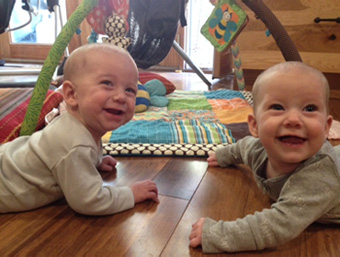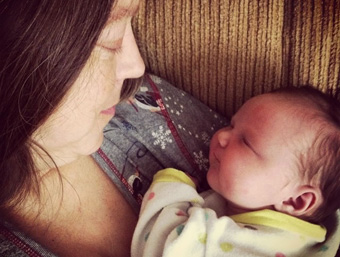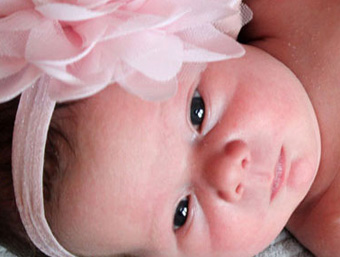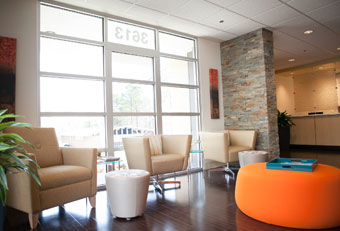
Tubal Ligation Reversal or In vitro fertilization (IVF)?
Is tubal reversal or IVF the better treatment for women who have had their tubes tied (tubal ligation procedure) and now want to become pregnant again?
The choice between IVF or tubal reversal must be made by couples who have had their tubes tied and are considering more children.
This series was written to help women evaluate and compare tubal ligation reversal surgery with the alternative treatment of IVF. This article compares the success of IVF compared with the success of sterilization reversal (tubal ligation reversal).
Previous articles in this series discussed:
IVF Pregnancy Success Rates: Source
The Centers for Disease Control (CDC) annually monitors the success of IVF across the United States and is considered to be an unbiased source for statistics regarding assisted reproductive technology (ART). Recently the CDC has published IVF pregnancy statistics in the 2010 Assisted Reproductive Technology (ART) Annual Report.
IVF Pregnancy Success 2010
In 2010, the CDC collected information on 99,000 IVF cycles using fresh non-donor eggs (non-frozen eggs from the patient) or embryos. The information below about IVF pregnancy success can be seen on the CDC website: Outcomes of IVF cycles 2010.

IVF Outcomes 2010
In 2010, 62.4% IVF cycles did not result in pregnancy and 36.8% of IVF cycles resulted in a clinical pregnancy. Two-thirds of the pregnancies were singletons and one-third were multiple pregnancies resulting in twins or higher order multiple births.
The CDC defines a clinical pregnancy as a pregnancy that progresses to the point at which it can be seen on ultrasound. Many pregnancies after IVF miscarry prior to being seen on ultrasound. Although IVF centers call these “chemical pregnancies”, they are true pregnancies that miscarry very early.
IVF: Take Home Message
Any woman considering IVF treatment for infertility has a 36% chance per IVF cycle of becoming pregnant and a 62.4% chance of not becoming pregnant when using her own fresh (not frozen) eggs or embryos.
Should a pregnancy occur then a small percentage of women will miscarry the pregnancy after it is seen using an ultrasound and 1 out of every 3 will result in the birth of twins or more. These numbers are average percentages of success across the United States and among all IVF providers. Some IVF providers may provide slightly lower or higher success rates per IVF treatment cycle.
This means a patient who undergoes a single IVF cycle has a 36% of becoming prengant and 1 out of every 3 of these pregnant women will have twins or a high-order multiple gestation.
Tubal Ligation Reversal Success Rates
A Personal Choice is the only center in the world specializing in tubal reversal surgery to reverse tubal ligation and corrective tubal surgery to improve the function of fallopian tubes closed (blocked tubes) due to scar tissue.
Tubal Ligation Reversal Pregnancy Success : Source
A Personal Choice has the largest known data base on pregnancy success and tubal ligation reversal. From 2001 to 2011, we performed over 9,900 tubal surgeries. The data collected during this period was used to create our Tubal Reversal Study 2011 Report. The source of the data is self-reported pregnancies from patients who have undergone tubal ligation reversal at our center and submitted a Pregnancy Report Form to us.
Pregnancy Rates by Age After Tubal Reversal
| Age | Total Cases | Pregnant (No.) | Pregnant (%) |
| <30 | 1388 | 1128 | 81% |
| 30-34 | 3758 | 2823 | 75% |
| 35-39 | 3483 | 2262 | 65% |
| 40+ | 1306 | 443 | 34% |
| Total | 9935 | 6656 | 67% |
Tubal Reversal Pregnancy Success Rates
In 2011, we evaluated the cumulative number of pregnancies self-reported from approximately 9935 of our tubal reversal patients. The above table demonstrates the overall percentage of reported pregnancies among tubal reversal patients at our center was 67%. This was age dependent. Younger patients tended to experience higher pregnancy rates (81% of women under the age of 30 reported pregnancy) and, as age increased, pregnancy rates overall decreased (34% of patients over the age of 40 reported pregnancies).
The outcomes of the above pregnancies by age can be seen on the Pregnancy Outcomes page of our 2011 report.
Tubal Reversal (Sterilization Reversal): Two Key Concepts
Miscarriages. According to our database, approximately 1 out of every 3 patients (33%) experienced a pregnancy miscarriage. In comparison, the CDC IVF 2010 data reports 16% miscarriage rate. It is important for readers to understand why the dramatic difference between the two miscarriage rates.
We ask our patients to report every positive pregnancy test. The CDC does not record every positive pregnancy test. Instead, they only record pregnancies seen on ultrasound. The 2010 IVF patients probably experienced a higher miscarriage rate than 16%. These pregnancies probably miscarried (or stop growing) either before there were implanted into patients or after implantation but before they were able to be seen on ultrasound. The women who had miscarriages after implantation would have been counted in the group of patients who did not become pregnant.
Also A Personal Choice uses cumulative data- data collected over several years on all our patients. These are all reasons why the miscarriage rates appear different between IVF and tubal reversal.
Cumulative data. We use information collected on all our patients over several years. The CDC report used information on IVF cycles for 2010 only. We feel this is an important point to acknowledge as readers try to compare. We feel cumulative data better demonstrates the advantage of tubal reversal, because it allows patients many opportunities to try over several years. As a result following tubal reversal patients for several years, the higher effectiveness of tubal ligation reversal over IVF becomes very apparent.
Reversing Tied Fallopian Tubes: Take Home Message
Any woman considering tubal ligation reversal has a a 7 in 10 chance of having a pregnancy after tubal ligation reversal. Of these pregnancies, approximately half will result in birth of a child. These numbers could be higher over time since, after reversing tied tubes, women have many chances to become pregnant and the cumulative pregnancy rate continues to increase with the passage of time.
Coming Next
The next article in this series will discuss pregnancy success of both tubal ligation reversal and IVF based on age of the patient.
Understanding the information in this next article is critical to understanding the chance of success of either tubal reversal surgery or IVF based upon a woman’s age at the time of treatment.
Submitted by Dr. Charles Monteith










